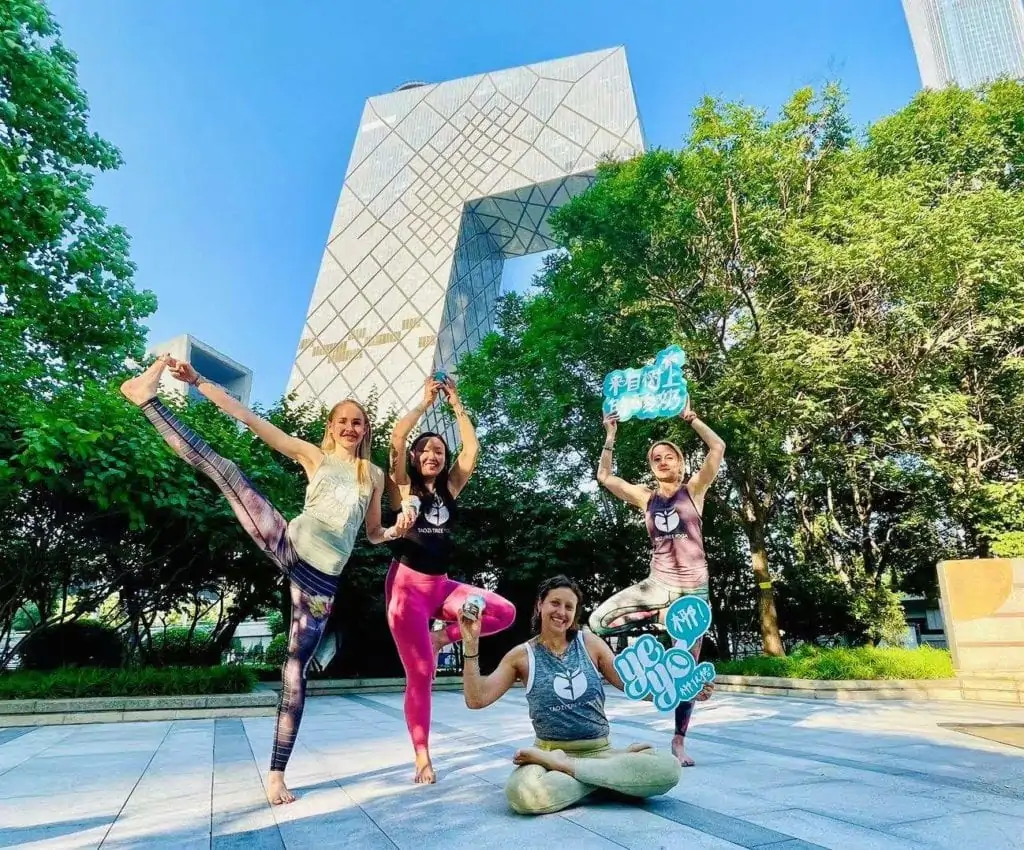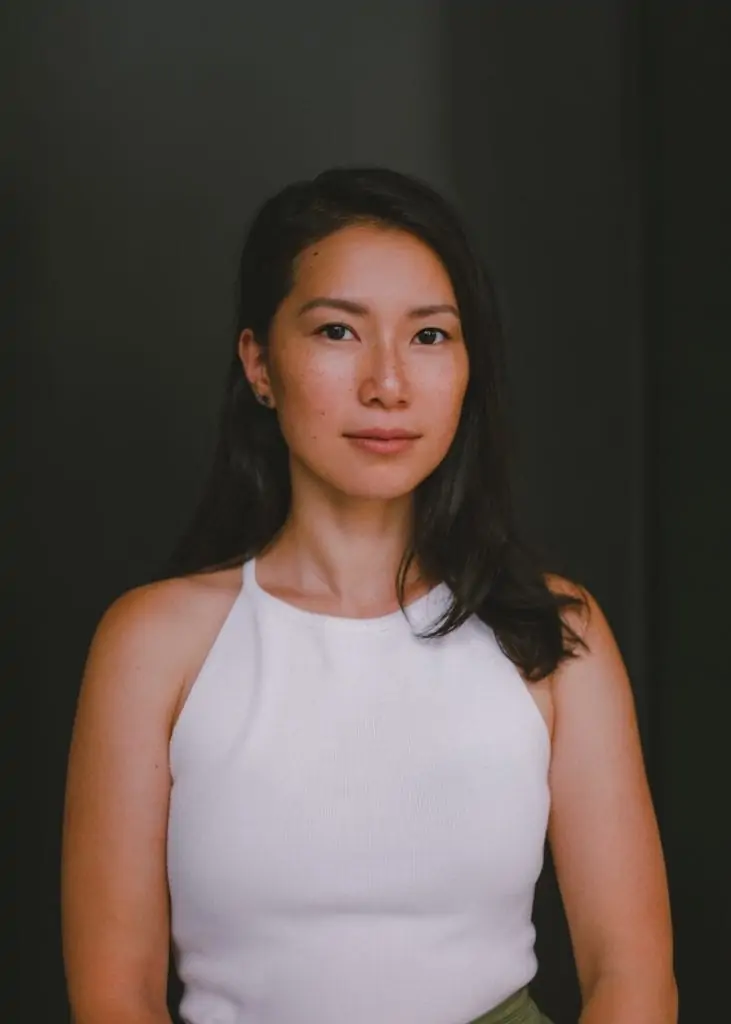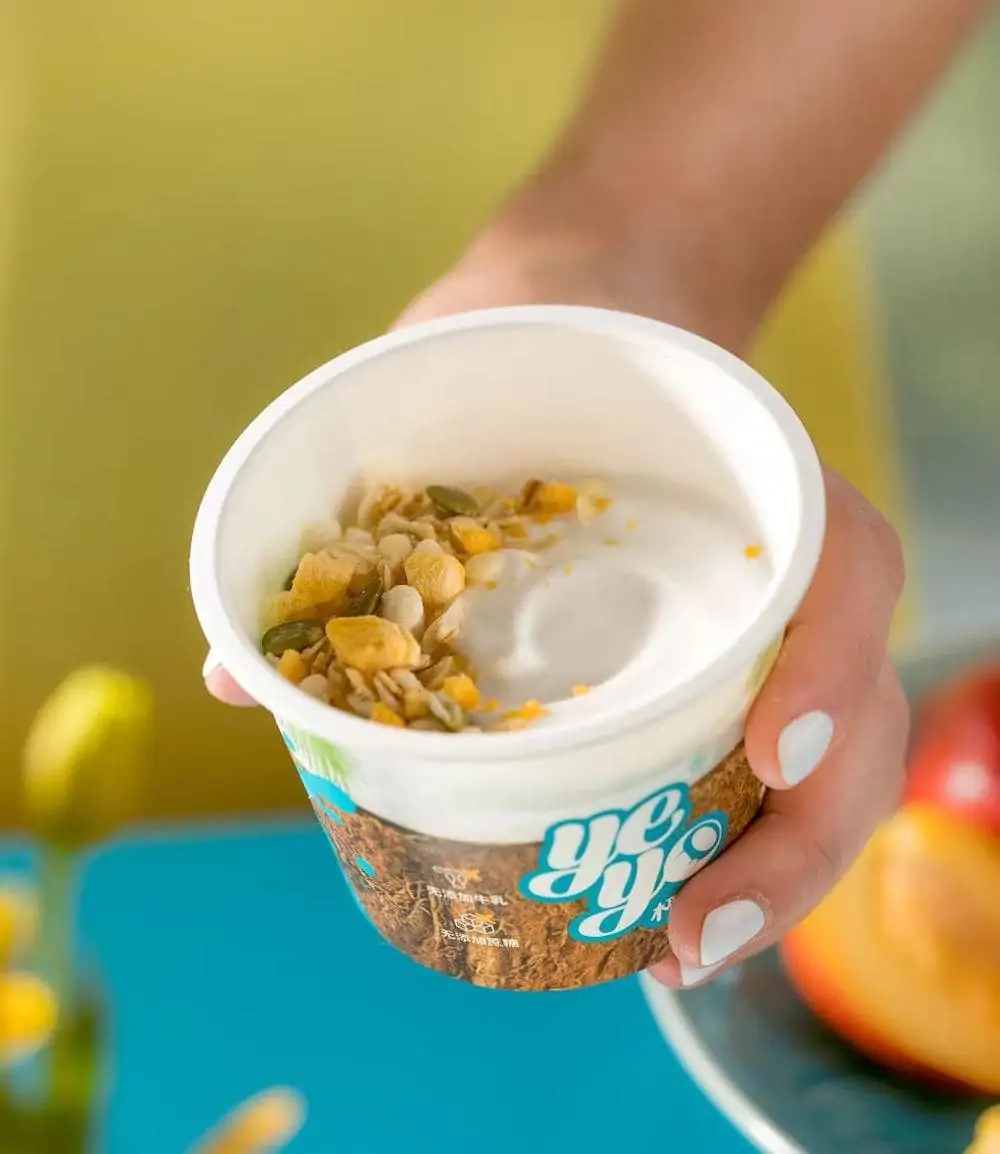In this series we look at China-based entrepreneurs, the businesses they have developed, and how they have coped with recent obstacles created by the pandemic. Christiana Zhu, founder of plant-based yoghurt brand Yeyo, recounts her China journey
I moved to China in 2014 to work on a growth project as a specialist marketing consultant for sustainable travel company WildChina. At the time I was 5 years into my career in consumer marketing in the tourism sector. I studied PR and started working for the New Zealand tourism board after graduation. They groomed me to become an Asia and China market specialist but I was based in New Zealand working with our China teams and I wanted to get more in-market experience, so this consulting opportunity seemed perfect.
My plan was to come to China for one year and then look to starting my own business in the tourism sector. After the project finished, the CEO asked me to stay on to become the company’s head of marketing, an opportunity that was too good to pass up, so I stayed on in Beijing. Eventually, I did become an entrepreneur, but I never would’ve guessed it would be in food!
The concept for Yeyo came about in 2016. After my move to China, I started experiencing some health issues which spurred a big lifestyle change where I needed clean, plant-based yoghurt to heal my gut and balance my immune system. I developed something delicious and nourishing for myself and I wanted to share it with others.
I had moved from Queenstown, a pristine alpine town with a population of 20,000, to smoggy 2014 Beijing, population 20 million. My immune system went into overdrive and I became very allergic to various things, including dairy and eggs. My energy was always low and I suffered from severe eczema which had me wearing long sleeves and pants all through the sweltering summers so I could keep my sores from infection. I was desperate to get better. Through research, I learned about the importance of gut health to fortify immunity and discovered the perfect source of nourishing comfort in sugar-free coconut yoghurt on one visit home.

Yeyo markets to a target audience of 25-35-year-old Tier 1 city fashion and fitness-loving women
When I came back to Beijing, I couldn’t find anywhere to buy coconut yoghurt, so there was no other option but to make it myself. Being a foodie, I was focused on making it taste like a delicious yoghurt that just happened to be dairy-free so I could also share it with regular dairy-consuming friends. Turns out I didn’t do a bad job of it. Some friends with extra kitchen space in their restaurant invited me to make it there, and another friend who ran a gourmet farmer’s market invited me to sell it there – so I designed a brand for it, and Yeyo was born.
My entrepreneurial experience has been a journey with many chapters. It started out as a fun side project where I could hang out with chefs and create delicious food as a balance to a more corporate career. The business was small, simple and cash-flow positive. We were community-focused and only aimed to make enough yoghurt for our regular customers so we were often sold out. After a couple of years in this mode, I started to feel a growth in interest from the wider market for plant-based products and one day realised that the energy I was spending on my ‘side hustle’ was starting to equal that of my real job, so I needed to choose which path to go down. I discussed the business case with my sister (now my co-founder), who had a decade of experience in business strategy and FMCG (fast moving consumer goods) and we decided to go for it. I went out to raise some seed funding, she quit her job as a top exec at Heineken, and we set out on the path we’re on now.
Back then, I had no idea what the playbook for fundraising was, but I figured it was all about presenting the right idea to the right people so I drew on media pitching and PR principles from my previous career. First, you identify what your key story angle is and what community would be interested, then you network your way to presenting it to the most influential people in that community. Of course, there’s also luck involved and for me, I managed to connect with some influential players very early on, which was very fortunate as I was fundraising by myself since my sister had still not come on board full time. We’re currently in the process of closing our second round of funding and I would say one of the biggest differences is having a partner to work with – it makes the process more solid. Two brains are definitely better than one.
We’re currently in the process of closing our second round of funding and I would say one of the biggest differences is having a partner to work with. Two brains are definitely better than one.
We’ve faced so many challenges along the way, as with all startups. From financing to sourcing to hiring, we needed to build everything from scratch and it’s the first startup for both of us, so the learning curve is steep. The growth is what we live for though.
There’s certainly been significant growth in the market for dairy-free/plant-based products in the last couple of years. Sales for plant-based drinks grew 800% on Taobao in 2020, and there have been many new product launches since as the market grows more confident the trend is here to stay.

Yeyo co-founder Christiana Zhu
We started out online with our Tmall (Taobao) store so we could build some targeted brand awareness. We are now beginning to expand to offline channels in Shanghai and Beijing, starting with premium supermarkets. We’ve gone with a very niche brand play for our first product line, an indulgent sugar-free spoonable coconut yoghurt, so we currently focus our marketing efforts on working with influential brands and KOLs that resonate with our target audience of 25-35-year-old tier one city fashion and fitness loving women.
Fortunately for us, we were at the R&D stage for our commercial product during the worst of the pandemic so it did not derail our sales plans too much. If anything, it has been beneficial for packaged foods and premium foods in general as consumers are seeking healthier lifestyle upgrades now due to the pandemic.
If I could give future China entrepreneurs one piece of advice, it would be to always be listening. The market changes fast and you will need to keep up both on product design and how to play to stay in the game.




